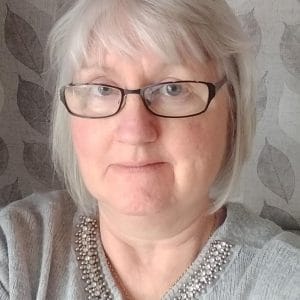Not everything needs to be measured in terms of money.
Jac Harmon
When you think about success, what’s the first thing that comes to mind? Is it money, fame, and being able to quit the day job? Or is it something else? Maybe it’s your novel for sale in a bookshop or even the knowledge that people out there love your writing and eagerly anticipate everything you publish.
Whatever stage we are at in our journey as authors, we all have our own personal idea of what success means.
A Study of Three Authors
Let’s take a look at success from the point of view of three authors. Each of them has already accomplished a huge amount, but what has this meant in practical terms? Has it changed their outlook? And moving forward, what are their new goals?
Paul Austin Ardoin is the USA TODAY bestselling author of the Fenway Stevenson Mysteries and has just embarked on a new series, Murders of Substance, the first book of which, Ceremony, is out now.
Caimh (pronounced “Cweeve”) McDonnell hails from the Republic of Ireland and is the author of The Dublin Trilogy and the presenter of the “Bunnycast” podcast. Caimh, who also writes as C.K. McDonnell, started as an indie author and then went hybrid when he signed a contract for a new project.
Ian W. Sainsbury is from East Anglia in the UK and was the Kindle Storyteller of the Year in 2019 for his novel The Picture on the Fridge. He has also written two science fiction series and the Audible-first book Clockwork Sherlock.
Success: Past and Present
How did these three writers define success when they first started?
Paul, who graduated from college with an English degree, hoped to be a celebrated, award-winning literary author. Ian, who admits to being both wary and suspicious of success, wanted to indulge his imagination and make a living by creating stories. Before turning to prose, Ciamh had written for TV, but his first idea of success in book terms was getting a publishing contract.
So how do they define success now?
Caimh, whose wife runs their publishing business full-time (a huge success in itself), expects writing novels to be how he makes a living from now on although he cultivates a “never say never“ attitude. His current fiscal goal is to buy a house with a long garden, so long that a ball he throws for his dogs won’t reach the end.
Paul wishes he’d known what he knows now—that success doesn’t come from writing what your university lecturers advise you to write. It comes from writing what you love. In his case, that’s not literary fiction; it’s crime and murder mysteries. Success was and is about choosing his own path.
Ian says that, while he remains wary of the concept, success is always about finishing the book he’s currently working on and reading more.
Goal Setting for Future Success
Paul has a unique process for setting goals and uses what he calls “thought blobs” as he neither sees nor hears words in his head. These “thought blobs” are like lime-green paint balls, and when he accesses them, they appear as words on paper (if he’s typing) or speech (if he’s talking). His goals reside in these blobs, and he pulls on them when he needs to move forward with a story.
Paul doesn’t use a specific tracker although he now writes his goals down and has a Word document that he reviews every two weeks with a group of local authors. Before this, he kept everything in his head, and although his Word document helps him keep track, he still uses his paint blobs.
Ian sets daily and weekly word count targets, but like most of us, he accepts these are a moveable feast. When asked about bigger work or life goals, he said, “I think part of the reason for such a varied career is the fact that I wasn’t on rails pursuing goals. I’m not knocking it—many people I admire swear by goal-setting—but it’s not compulsory. It’s a choice. You can choose to be open to ephemeral opportunities you may otherwise have missed.”
As far as technology is concerned, once Ian discovered Scrivener, he stuck with it and doesn’t see himself using anything other than its daily word count goals.
Like Ian, Ciamh also uses the word count function on Scrivener. His particular business model allows him to organize his life around his ultimate goal—getting words on the page. He focuses on the day-to-day, ensuring he hits his word targets and, as long as he does this, feels he has met his target. With his wife as the CEO of the business, he is relieved of dealing with any other deadlines.
Do these answers mean our authors are more strict with themselves now in terms of goal setting or in organizing their writing time?
Paul is definitely more strict with marketing, scheduling promos, and applying for BookBub Featured Deals. As for writing, he thinks he’s become less strict. His first five novels were products of NaNoWriMo. “But,” he says, “as I’ve gotten more successful, I write when I have time, not forcing myself into the calendar schedule.”
Ian is at the point where he generally has a few hours clear every day to write. That’s partly down to his stage of life, he thinks, and wonders how he managed to write and parent properly when he was doing both. (That’s a common dilemma for many.)
With success, Ciamh finds it easier to be selfish on his writing’s behalf. “As long as I’m getting words down,” he says, “that’s the best thing that can happen for the business.”
The Elena Ferrante Question
The Italian author Elena Ferrante is famous for being an enigma. Although she is incredibly successful, she never appears in public, and all correspondence goes via her publisher. Periodically, a story will appear in the press claiming that she has been unmasked, but invariably it’s a hoax. According to Ferrante herself, "Books, once they are written, have no need of their authors,” and if anonymity is her personal measure of success, then she’s very successful indeed.
So what do our authors think will be the downside of this level of personal success for them? Paul would hate not being able to go to the grocery store in peace. Ian is sure he’d soon become bored with all the parties and movie premieres—but then, maybe not! And Caimh? He has had a dream where he had to take Ryan Reynolds through all the characters in his books and explain why he wasn’t suitable to play any of them. “He took it well,” he says, “but I'm really not looking forward to having that chat in person!”
Success doesn’t have to be fame or wealth; it’s fine to have smaller goals that can be met over a shorter space of time. Set yourself a goal and allocate a reward for achieving that goal. It’s clear that success comes in all shapes, sizes, and colors. What does yours look like?
Links:
https://www.paulaustinardoin.com
https://whitehairedirishman.com
Elena Ferrante quote: https://www.newyorker.com/magazine/2013/01/21/women-on-the-verge [Accessed 30 September 2021]


